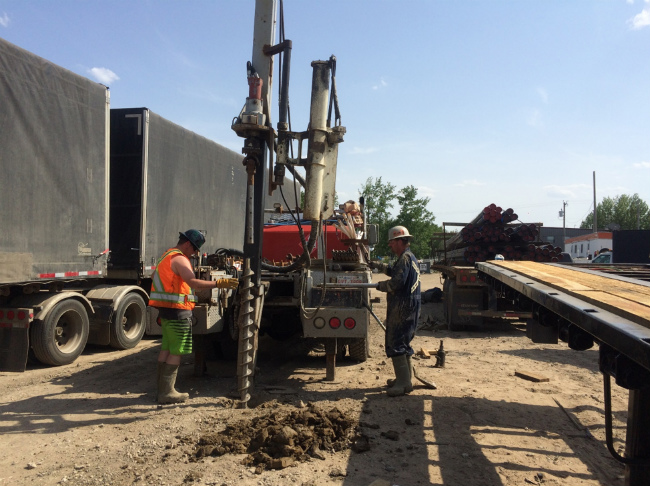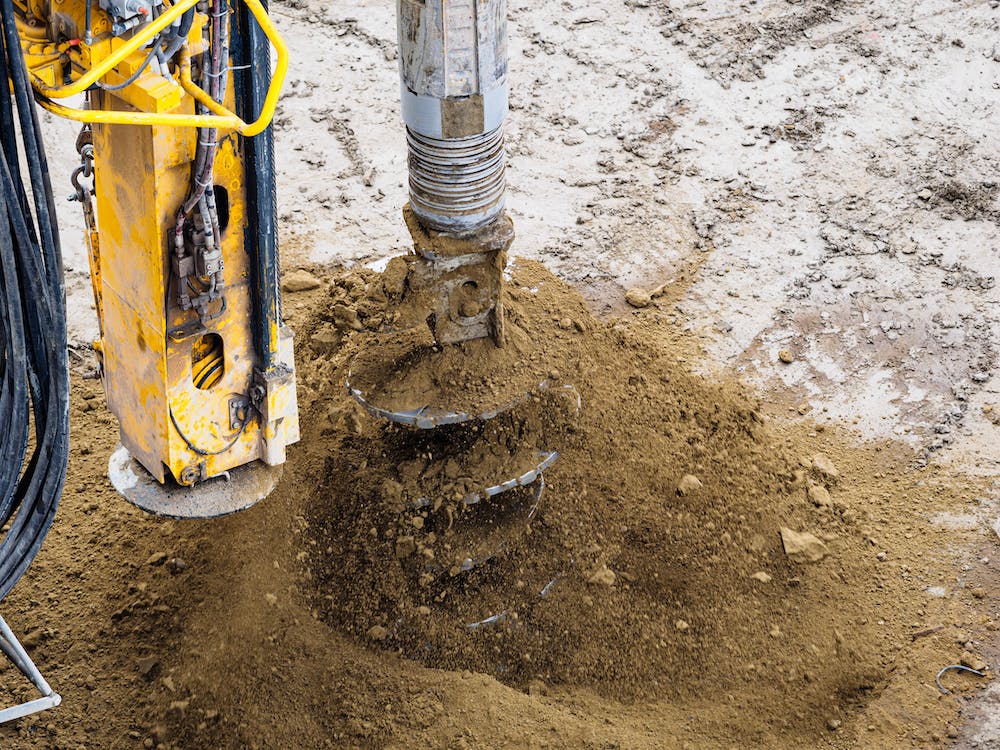Why All About Geotechnical Engineering Matters in Today's Framework Growth
Why All About Geotechnical Engineering Matters in Today's Framework Growth
Blog Article
The Relevance of Geotechnical Design in Resolving Ecological Obstacles and Enhancing Building And Construction Safety And Security
Geotechnical engineering serves as a keystone in the intersection of environmental stewardship and building and construction security, providing vital insights into the habits of soil and rock under various problems. By applying calculated website examinations and customized mitigation measures, geotechnical designers play an essential role in securing both human lives and environmental honesty.

Duty of Geotechnical Design
Geotechnical design plays a crucial duty in the style and building of framework by attending to the behavior of soil and rock products under numerous problems. This area of engineering is vital for comprehending the interaction in between frameworks and the ground, that includes identifying the load-bearing capacity of dirt, examining stability, and predicting possible negotiation or failure.
Geotechnical engineers are liable for carrying out site examinations, which include sampling and screening dirt and rock to gather information on their chemical and physical homes. This information is essential for making foundations, preserving wall surfaces, and other earth-retaining frameworks that guarantee safety and security and durability. Furthermore, geotechnical design informs the option of proper construction approaches and materials, therefore reducing threats connected with dirt habits.
Furthermore, the assimilation of geotechnical engineering concepts right into urban preparation and ecological administration is vital for addressing difficulties such as ground contamination and groundwater management. By recognizing geotechnical factors, designers can create sustainable services that boost the resilience of infrastructure versus all-natural hazards, while likewise promoting ecological stewardship. Inevitably, the role of geotechnical engineering is vital for attaining safe, resilient, and ecologically aware building and construction practices.
Soil Erosion Mitigation
Soil erosion presents a substantial threat to both environmental stability and infrastructure stability, affecting around 24 billion lots of fertile soil shed annually worldwide. This phenomenon is exacerbated by elements such as deforestation, urbanization, and bad agricultural methods. Geotechnical engineering plays a critical function in establishing efficient dirt disintegration reduction approaches that guard both the setting and building and construction tasks.
One technique requires the execution of disintegration control techniques such as greenery planting, which stabilizes dirt via origin systems. Furthermore, the building of keeping walls and balconies can efficiently decrease surface drainage and secure prone areas from disintegration. Correct drain design is also critical; it decreases water build-up and directs excess drainage far from important structures.
Furthermore, geotechnical designers utilize soil stablizing methods, such as the application of geotextiles and biodegradable floor coverings, to boost soil communication and prevent deterioration - about geotechnical engineering. Regular monitoring and analysis of erosion-prone sites make it possible for timely treatments, making sure long-term sustainability. By incorporating these techniques, geotechnical design not only minimizes the impacts of dirt erosion however additionally adds to the resilience of framework against environmental obstacles, eventually cultivating a safer and a lot more sustainable developed setting
Groundwater Protection Methods
Groundwater works as a crucial source for drinking water, agriculture, and commercial procedures, making its protection necessary for environmental sustainability and public health and wellness. Reliable groundwater protection techniques are essential in mitigating contamination dangers and making certain the longevity of this resource.

Routine monitoring of groundwater top quality is likewise important, enabling very early detection of contamination resources and helping with prompt remediation initiatives. Utilizing innovative innovations, such as geophysical surveys and remote noticing, aids in determining possible risks to groundwater gets.
Additionally, public education and learning and stakeholder interaction are critical, promoting area support for groundwater security campaigns. geotechnical engineer description. By integrating regulatory steps, technical advancements, and area participation, we can produce a thorough framework that safeguards groundwater resources while advertising lasting development and building techniques
Landslide Threat Management
Landslides position substantial hazards to both human safety and facilities, making reliable threat management techniques necessary. Geotechnical design More hints plays an essential function in determining, examining, and mitigating landslide threats. A comprehensive understanding of slope stability, soil mechanics, browse around this web-site and hydrology is important for establishing efficient threat monitoring strategies.
The initial step in landslide threat monitoring entails comprehensive site investigations, which include geological mapping and soil testing. These investigations help engineers evaluate the potential for landslides by identifying crucial elements such as slope angles, soil composition, and water content. Utilizing advanced technologies such as remote sensing and geophysical surveys can boost the precision of these analyses.
When dangers are identified, suitable mitigation measures can be implemented. These may include engineering remedies such as preserving wall surfaces, drain systems, and slope stabilization techniques. Furthermore, keeping track of systems ought to be established to identify indicators of ground activity and modifications in water levels, enabling for positive interventions.

Enhancing Construction Security
Construction websites usually offer a myriad of threats that can threaten worker safety and job honesty. Geotechnical engineering plays a vital role in improving building and construction safety by supplying crucial understandings right into subsurface conditions. Through detailed soil and rock analysis, geotechnical engineers can identify potential risks, such as dirt instability, groundwater concerns, and seismic vulnerabilities, which may endanger the safety and security of building and construction tasks.
Applying geotechnical services, such as correct foundation style and the usage of keeping frameworks, reduces these risks substantially. These services not just guarantee the security of the structures being built however also produce a more secure working environment for building employees.
In addition, fostering a culture of security with training and adherence to developed safety and security methods further enhances building site security. By integrating geotechnical knowledge into the planning and execution phases, construction projects can achieve higher safety standards, inevitably protecting employees and making certain successful job conclusion.
Verdict
Finally, geotechnical engineering works as an important discipline in promoting and dealing with ecological difficulties building safety. Through effective dirt disintegration mitigation, groundwater protection approaches, and landslide threat administration, geotechnical engineers add to the advancement of durable infrastructure. The assimilation of these methods fosters a try this web-site more secure building atmosphere and boosts the sustainability of civil design projects. Inevitably, the experience of geotechnical designers is essential in safeguarding both all-natural resources and human lives versus potential threats.
Geotechnical design serves as a foundation in the junction of environmental stewardship and building and construction safety, supplying crucial understandings into the habits of dirt and rock under various conditions. Geotechnical design informs the choice of ideal construction techniques and products, thereby lessening threats associated with dirt actions.
Geotechnical engineering plays a crucial role in establishing reliable dirt erosion mitigation methods that guard both the environment and building tasks.
Furthermore, geotechnical designers use soil stabilization methods, such as the application of geotextiles and eco-friendly floor coverings, to enhance soil communication and protect against deterioration. With detailed dirt and rock evaluation, geotechnical designers can identify potential risks, such as soil instability, groundwater problems, and seismic susceptabilities, which might compromise the security of building and construction activities.
Report this page